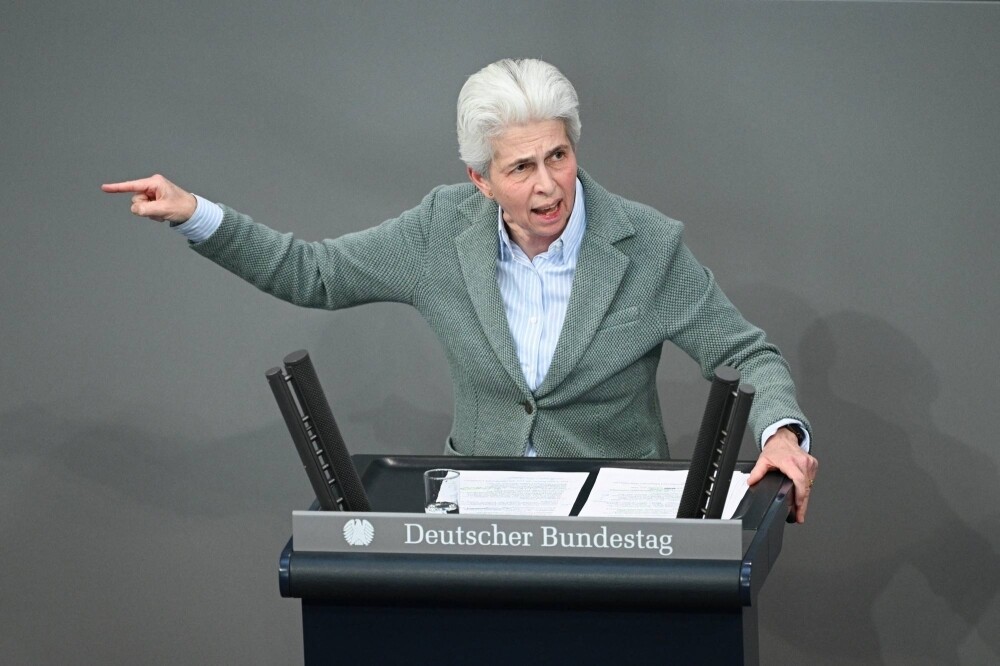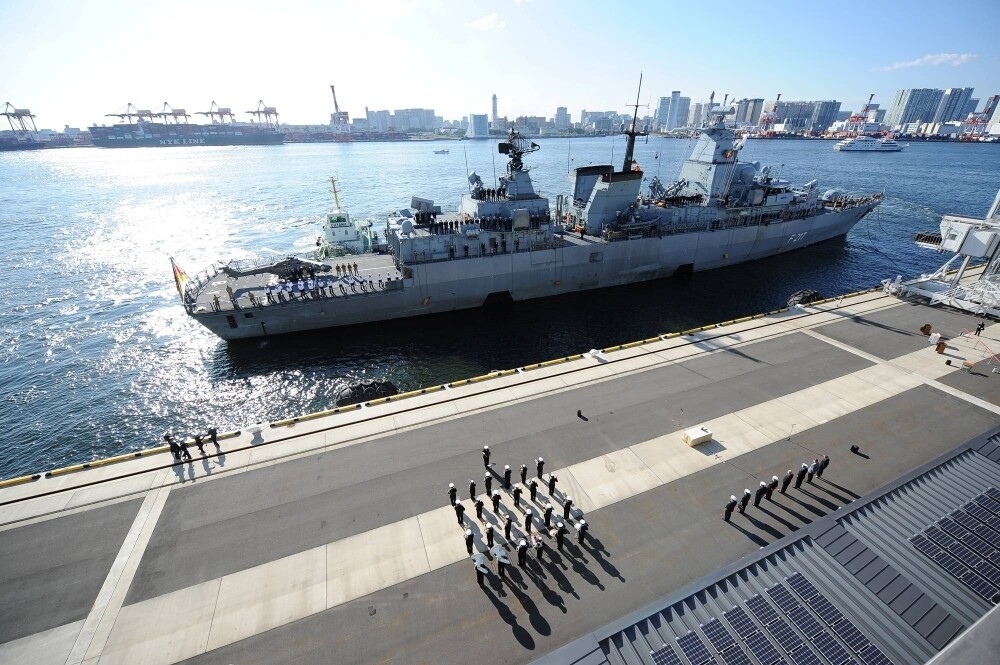German MP warns of complacency amid growing Indo-Pacific threats
BY GABRIEL DOMINGUEZ
STAFF WRITER
Mar 28, 2024
The raging war in Ukraine and heightened tensions in the Asia-Pacific show that the growing momentum in German-Japanese security cooperation needs to be sustained, the chair of the German parliament’s defense committee said Wednesday during a two-day visit to Tokyo.
Arguing that the security of Europe is inseparable from that of the Indo-Pacific, Marie-Agnes Strack-Zimmermann said that Russia’s invasion of Ukraine “is not just a European issue but one that affects the entire world,” warning that democracies around the world cannot afford to be complacent amid the growing threats posed to the international “rules-based order.”
“Nations with liberal and democratic values need to work together to tackle these challenges,” she said, noting that the international community needs to pay closer attention to the often-belligerent rhetoric coming from places such as China and North Korea, particularly as they forge closer relations.
“We can no longer afford to ignore this rhetoric, hoping that nothing will happen,” the 66-year old warned.
Strack-Zimmermann, a member of Germany’s three-party coalition government, is also one of three lead candidates from the pan-European liberal camp to run in June’s European parliamentary elections.
“In the years prior to the Ukraine invasion, (Russian President Vladimir) Putin said many things that he is now implementing ‘by the letter,’” she said.
“But at the time many didn’t take him seriously,” Strack-Zimmermann warned, emphasizing the need for greater preparedness and international cooperation.
Both Tokyo and Berlin have repeatedly expressed their strong opposition to “unilateral attempts to alter the status quo by force,” not only in Europe but also in the East and South China seas.
To deal with what it views as an “increasingly severe” international security environment, Japan has in recent years expanded its network of security partners around the globe while substantially boosting its Self-Defense Forces’ capabilities.
The German Navy Frigate Bayern docks at Tokyo’s International Cruise Terminal on Nov. 5, 2021. The German Navy is set to kick off its Indo-Pacific deployment of one frigate and one combat support ship in May, three years after its first such mission to the region in over 20 years. | POOL / VIA REUTERS
Strack-Zimmermann, who indicated she would support closer cooperation with Japan in the area of munitions supplies, said that Berlin’s incremental military activities in the Indo-Pacific region are meant to highlight its willingness and readiness to protect its interests and values.
An example of the latter, she said, was Berlin’s approval last month of German military participation in the European Union Red Sea naval mission Aspides, which is aimed at securing safe passage for merchant vessels that have been targeted by Yemen’s Houthi rebels.
Observers say this should serve as a hint that Berlin might also be willing to take similar action in the event of a Taiwan Strait crisis.
A defense expert who has argued for more aggressive support for Kyiv, Strack-Zimmermann has made headlines for her open disagreements with some of the German government’s policies on Ukraine.
This includes Chancellor Olaf Scholz’s ongoing refusal to supply Kyiv with powerful Taurus missiles, which have a range of 500 kilometers (310 miles) and could potentially strike targets deep in Russia, including Moscow.
Strack-Zimmermann is the latest high-ranking German politician to visit Japan in recent months, with diplomatic engagement between the two countries ramping up since the two sides formally established “two-plus-two" meetings between their foreign and defense ministers in 2021.
According to analyst Helena Legarda, a defense policy expert at the Berlin-based MERICS think tank, Berlin is not only seeking a continuous and long-term security commitment to the region but also new partners amid Europe’s push to diversify and de-risk ties with China.
The shared concerns with Tokyo have resulted in Germany’s actions increasingly moving beyond the diplomatic realm.
For instance, while Berlin’s first-ever China Strategy, released in July 2023, may have been more of a position paper than a proper strategy, it has created “a baseline allowing the Defense Ministry and other parts of the government to expand their security engagements in the region,” Legarda wrote.
Indeed, Germany and Japan concluded a defense pact in January that will facilitate the exchange of supplies and logistical support while allowing the use of each side’s military facilities during joint exercises.
This comes as Germany’s military is planning to beef up its participation in various international military drills this year, with the navy set to kick off its Indo-Pacific deployment of one frigate and one combat support ship in May, three years after its first such mission to the region in over 20 years.
Simultaneously, the German Air Force is planning another exercise tour of the region.
These deployments, wrote Legarda, will be “bigger and more ambitious” than Germany’s last forays into the region, in 2021 and 2022.
Critics have argued that developments in China and North Korea pose little or no direct security threat to Germany, as these countries have no territorial or other sovereignty disputes with Berlin.
However, German politicians — including past defense chiefs — have repeatedly stated that, given the Indo-Pacific region’s economic and geopolitical importance to both Germany and the whole of Europe, “any conflict there would affect Germany massively, in multiple ways.”
KEYWORDS
GERMANY, DEFENSE, MARIE-AGNES STRACK-ZIMMERMANN, INDO-PACIFIC, GERMANY-JAPAN RELATIONS

